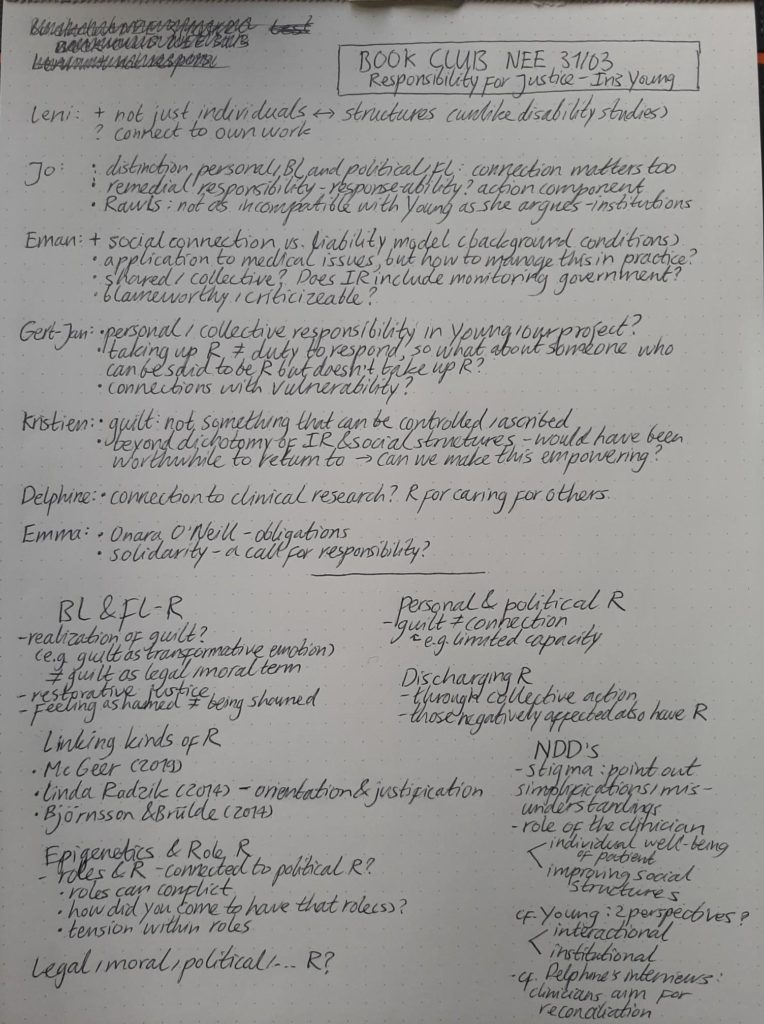In light of the COVID-19 outbreak, the NeuroEpigenEthics team members decided to stay in touch through video conferencing. Our online team meetings take place at least once a week. This week, we organized our first online book club on Iris Young’s Responsibility for Justice.
The concept of responsibility is one of those central to the NeuroEpigenEthics project. Each of our researchers is grappling with issues related to responsibility in their own way. To start a conversation on issues of structural injustice and collective responsibility in particular, we decided to read Young’s 2011 work Responsibility for Justice. The work of this prominent feminist political philosopher proved to be a very rich ground for discussion and further thought.
In our discussion we touched upon the main concepts in the book and tried to apply them to our own research. We appreciated Young’s project of shifting the focus away from a liability model of responsibility towards a social connection model of responsibility. Rather than pointing fingers, ascribing blame or guilt, or isolating those who did something wrong, we believe it might be useful to choose a more collective and forward-looking approach to responsibility. Young explains that “all those who contribute by their actions to structural processes with some unjust outcomes share responsibility for the injustice” (p. 96). Crucially, individuals can only discharge their responsibilities of this kind by taking collective action.
We discussed how Young’s ideas and those of other authors working on forward-looking responsibility might be applied to our own project(s). We talked, for example, about the tension between responsibilities that may be felt by a clinician diagnosing people with neurodevelopmental disorders. Wanting to be responsible for both the individual well-being of a patient and improving social structures that are currently unjust (for example because they are stigmatizing) may lead to inner conflicts. Others mentioned how insights from epigenetics influence our thinking about the relation between forward-looking and backward-looking dimensions of responsibility, and vice versa.
The picture below provides those interested with an overview of the points that were raised in this thought-provoking book club.
Iris Young, 2011, Responsibility for Justice, Oxford: Oxford University Press.
